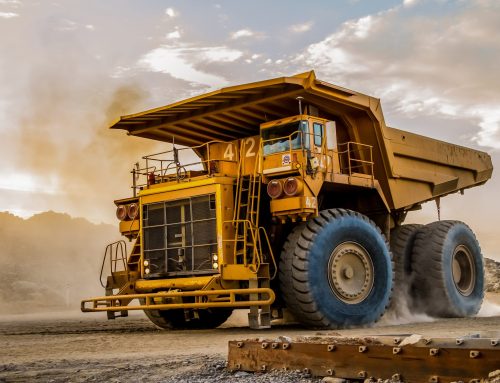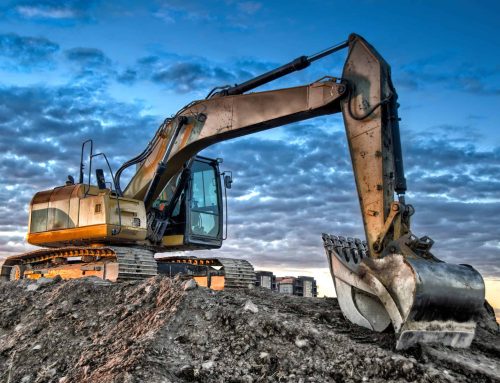In industries such as construction, mining, and agriculture, heavy machinery plays a crucial role in daily operations. However, the risk of vehicle fires on heavy machinery is a serious concern. Implementing regular fire protection services, including inspections and maintenance, can significantly reduce the risk of such fires, ensuring the safety of both employees and equipment.
Regular inspections and maintenance can prevent vehicle fires on heavy machinery. Consider these valuable tips for business owners to enhance fire safety.
The Risks of Vehicle Fires on Heavy Machinery
Heavy machinery is often exposed to harsh working conditions, including extreme temperatures, heavy loads, and prolonged operation hours. These conditions increase the risk of fires due to several factors such as:
- Fuel leaks: Heavy machinery typically operates using diesel or gasoline. Leaks in fuel lines or tanks can lead to fires if the fuel meets hot engine parts or electrical sparks.
- Electrical failures: The electrical systems in heavy machinery are complex, with numerous wires and connections. Faulty wiring, damaged insulation, or short circuits can easily ignite fires.
- Mechanical failures: Overheated engines, friction between moving parts, and other mechanical failures can generate enough heat to ignite flammable materials, such as fuel or hydraulic fluid.
- Accumulation of flammable materials: Dust, grease, and other flammable materials can accumulate on machinery over time. These materials can catch fire if exposed to high temperatures or sparks.
The Role of Regular Inspections
Regular inspections are the first line of defense against vehicle fires on heavy machinery. These inspections should be thorough and cover all critical components that could potentially cause a fire. Key areas to focus on include:
Fuel Systems
Inspect fuel lines, tanks, and connections for leaks or damage. Ensure that all components are securely fastened and free from wear and tear.
Electrical Systems
Check all wiring and electrical connections for signs of damage or corrosion. Ensure that insulation is intact and that there are no loose connections that could cause short circuits.
Mechanical Components
Inspect engines, hydraulic systems, and other mechanical components for signs of overheating, wear, or damage. Pay particular attention to moving parts that could generate heat through friction.
Fire Suppression Systems
If the machinery is equipped with a fire suppression system, ensure that it is in good working order. Check that all nozzles, hoses, and connections are intact, and that the system is properly charged.
The Importance of Regular Maintenance
In addition to inspections, regular maintenance is crucial for preventing vehicle fires on heavy machinery. Maintenance tasks should be performed according to the manufacturer’s recommendations and should include:
- Cleaning: Regularly clean machinery to remove dust, grease, and other flammable materials. Pay special attention to engine compartments and other areas where heat is generated.
- Lubrication: Proper lubrication of moving parts can reduce friction and the risk of overheating. Ensure that all lubricants are compatible with the machinery and are applied according to the manufacturer’s specifications.
- Component replacement: Replace worn or damaged components promptly. This includes fuel lines, electrical wiring, and mechanical parts. Using high-quality replacement parts can reduce the risk of future failures.
- System testing: Regularly test all systems, including electrical, fuel, and hydraulic systems, to ensure they are functioning correctly. This can help identify potential issues before they lead to a fire.
Tips for Business Owners
To further enhance fire safety on heavy machinery, business owners should implement the following practices:
- Develop a fire safety plan: Create a comprehensive fire safety plan that includes procedures for regular inspections and maintenance, as well as emergency response protocols. Ensure that all employees are familiar with the plan and know their roles in the event of a fire.
- Train employees: Provide training for all employees on fire prevention and response. This should include how to conduct basic inspections, recognize signs of potential fire hazards, and operate fire suppression equipment.
- Invest in fire suppression systems: Consider installing fire suppression systems on all heavy machinery. These systems can automatically detect and extinguish fires, minimizing damage and reducing the risk of injury to operators.
- Keep detailed records: Maintain detailed records of all inspections, maintenance, and repairs. This can help track the condition of the machinery and ensure that all necessary tasks are performed on schedule.
- Work with professionals: Partner with professional fire protection services to conduct regular inspections and maintenance. These experts have the knowledge and experience to identify potential fire hazards and implement effective prevention measures.
Fire Systems, Inc.
Preventing vehicle fires on heavy machinery is a critical aspect of ensuring the safety and efficiency of industrial operations. Regular inspections and maintenance play a vital role in identifying and addressing potential fire hazards before they lead to catastrophic incidents. By developing a comprehensive fire safety plan, training employees, investing in fire suppression systems, and working with professional fire protection services, business owners can significantly reduce the risk of vehicle fires and protect their valuable assets and personnel. Implementing these practices not only enhances safety but also contributes to the overall productivity and longevity of heavy machinery.
Fire Systems, Inc. is an Atlanta-based fire suppression company providing businesses with complete fire protection services. From fire alarm to sprinkler systems, Fire Systems truly does it all. As a family-owned and family-operated fire protection company, Fire Systems is dedicated to protecting the community against the dangers of fire. Fire Systems can protect your facility and keep your business in compliance. Contact Fire Systems today at 770-333-7979 or visit our website for more information.





